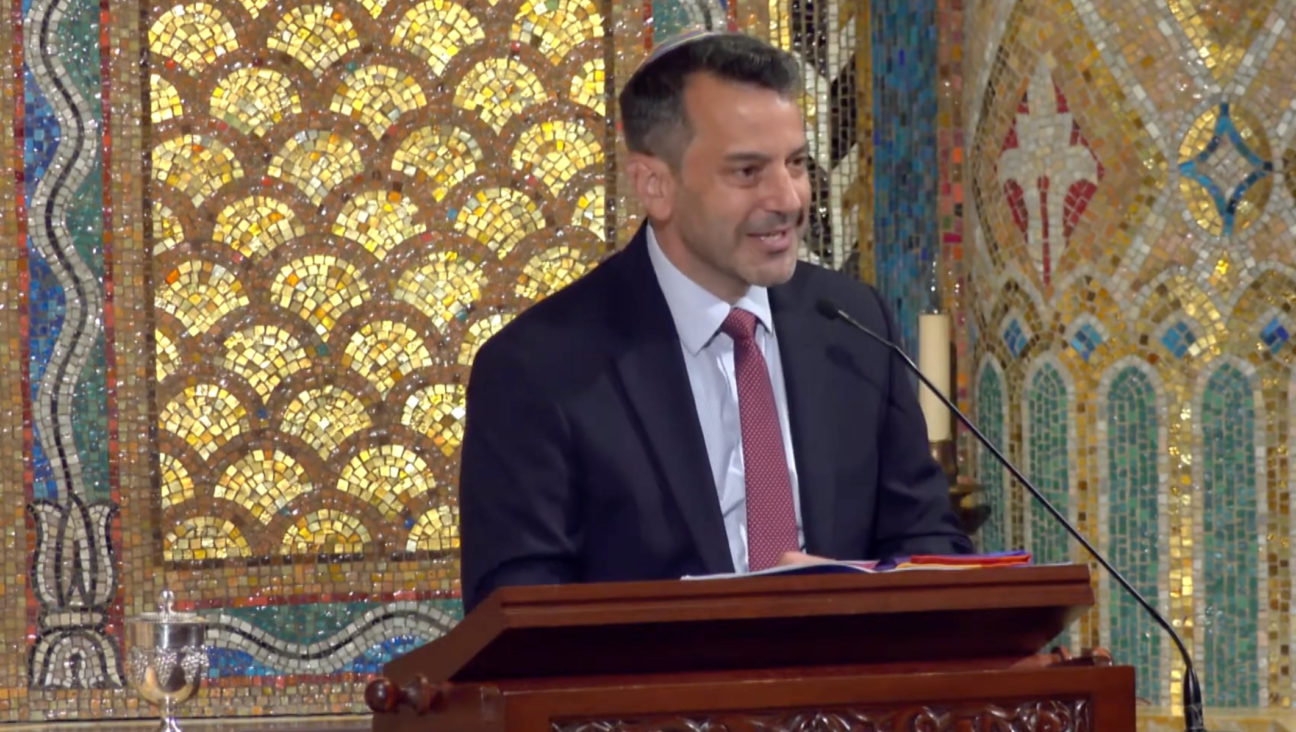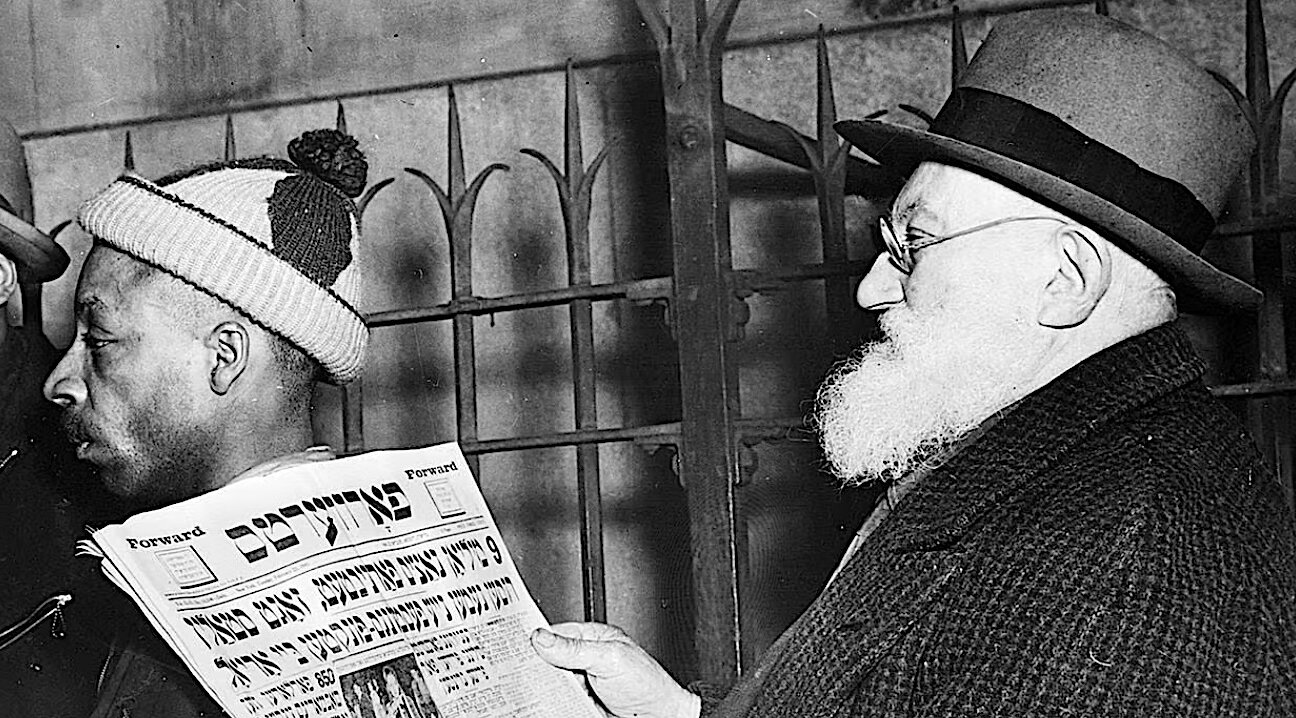A Wandering Jew Finds Her Way Back Home

The Wanderer: Ayelet Tsabari, author of “The Art of Leaving” Image by Jonathan Bloom
The Art of Leaving
By Ayelet Tsabari
Random House, 336 pages, $26
As a young woman, Ayelet Tsabari is the prototypical wandering Jew. She abandons her family, in suburban Tel Aviv, for the United States, Canada, India, Thailand and other countries, fleeing grief and loss. But is she losing even more in the process? Bouncing from city to city, she lives like a millennial’s version of a hippie: often barefoot, nearly penniless, intermittently heartbroken and perennially intoxicated or high.
Writing in her adopted language, English, the Toronto-based Tsabari burst onto the literary scene in 2016 with a short-story collection, “The Best Place on Earth,” which won both the Sami Rohr Prize for Jewish Literature and the Edward Lewis Wallant Award for Jewish Fiction. “The Art of Leaving,” described as “a memoir in essays,” is yet another showcase for her vivid storytelling, even if the narrative is sometimes frustrating in both form and content.
The book is divided into three sections, suggesting a circular quest: “Home,” “Leaving” and “Return.” But the return isn’t to where she started.
Tsabari lost her beloved father to heart disease when she was just 9, a disaster that shaped her life. Her need to escape is, in part, a product of her continued mourning. But her alienation is also fed by her status as a Yemeni Jew, part of an immigrant minority not fully integrated into Israeli society. As a world traveler, her identity is mutable. She is mistaken for a variety of nationalities and never has to inhabit her own.
But Tsabari’s malaise, whatever its origins, can seem both self-defeating and self-reinforcing. One bad choice leads inexorably to the next. The constant travel consumes money, interrupts relationships, and prevents her from establishing either a career or a family.
But as it turns out, it is not entirely purposeless. All those experiences nurture Tsabari’s sense of herself as a global citizen and inspire her writing — once she is able to return to it in a serious way. That is one component of the book’s happy ending. Before then, it’s hard not to grow impatient with Tsabari’s self-sabotaging behavior — all the more so because she doesn’t try to sugarcoat it.
The book’s format also can be challenging. Its chapters originated as essays. Now assembled more or less chronologically, they tell sometimes overlapping stories, leading to repetition and occasional confusion. The essays themselves move backward and forward in time, and it is not always immediately clear in which country Tsabari is traveling — or when, or with whom. That may be part of the point; looking back, perhaps the adventures all blur. Still, one could imagine a more rigorous rewrite that smoothed the essays into a holistic narrative.
The memoir begins in the town of Petah Tikvah, where Ayelet has the usual friends and crushes. In elementary school she’s already writing, with the support of her father, a lawyer who also writes poetry. His death turns out to be “the fork in the road where my future splits in two…” As a result, she will “try to live as wildly and loudly as I can to outdo the enormity of this moment, to diminish it.”
Required to complete her compulsory service in the Israel Defense Forces, the teenage Tsabari is an abysmal soldier, routinely flouting regulations. Despite her high test scores, she’s assigned to secretarial positions, though she can’t even type. She’s “often late and always grumpy.”
When she’s demoted to being a button-pusher at the base gate, “on the bottom rung of the army ladder,” she even manages to foul up that. At one point, she’s wrongly accused of stealing guns and subjected to repeated interrogations, which end with only a polygraph test. In fact, her army misadventures would make a great comic novel.
After just managing to escape a jail term for her military shenanigans (and after being groped by a friend’s father), Tsabari embarks on her travels and becomes embroiled with a series of lovers, male and female. Some she cheats on or abandons; others leave her. In Vancouver, she marries one boyfriend, mostly for immigration reasons, but the marriage, unsurprisingly, fails.
For a time, she seems to crave freedom more than love or meaningful work. She takes jobs as a hair stylist in Los Angeles, a waitress in Vancouver. Nothing lasts. “Leaving,” she writes, “is the only thing I knew how to do.”
Finally, as one might expect, Tsabari meets her prince, Sean, though she doesn’t recognize him right away. He travels for work, isn’t needy, gives her plenty of space. After she is assaulted on a bus, he comforts her. She realizes, over time, that “pretending not to care was exhausting.” Sean may be different from her other suitors, but perhaps, too, she is readier for a stable life. “Our relationship opened me up to the liberties that lie within commitment,” she writes.
Together they leave Vancouver and move to Toronto so that she can enroll in a graduate program in creative writing. At 39 she finally has a child, a daughter. After an initial period of loneliness and alienation, Tsabari falls in love with motherhood, the most conventional of outcomes. And so, her death-defying picaresque becomes a maternal fairy tale.
Julia M. Klein is the Forward’s contributing book critic.
A message from our Publisher & CEO Rachel Fishman Feddersen

I hope you appreciated this article. Before you go, I’d like to ask you to please support the Forward’s award-winning, nonprofit journalism so that we can be prepared for whatever news 2025 brings.
At a time when other newsrooms are closing or cutting back, the Forward has removed its paywall and invested additional resources to report on the ground from Israel and around the U.S. on the impact of the war, rising antisemitism and polarized discourse.
Readers like you make it all possible. Support our work by becoming a Forward Member and connect with our journalism and your community.
— Rachel Fishman Feddersen, Publisher and CEO
























